A new CNN poll shows that three-quarters of likely voters feel like the US economy is in a recession. It’s probably not, but that’s not the point.
The technical definition of a recession is two consecutive quarters of economic contraction, which the US economy recorded in the first half of the year. But this is America, and we do things differently than the rest of the world: Economists here accept that the United States is in recession only when an obscure and elite panel of experts determines that economic activity has undergone a widespread and significant decline for more than a few months. It’s hard to argue that happened, which we’ll explain below. And the US economy bounced back relatively well in the third quarter.
Still, the economy feels bad to the majority of Americans ahead of next week’s midterms. And for good reason.
Inflation
Consumer prices have been running hot for more than a year.
What began with supply chain bottlenecks wrought by the global pandemic — and worsened by Russia’s war in Ukraine — has morphed into a broader problem, walloping Americans with higher costs for everything from vegetables to vet bills.
The closely watched Consumer Price Index, which measures inflation by looking at a basket of commonly purchased goods and services, hit a four-decade high of 9.1% in June. The latest reading shows prices have cooled only slightly, to 8.2%. But that’s still the highest since the early 1980s, and it’s the first time many younger people have ever experienced inflation.
“Inflation has kind of become like a cancer,” Christopher S. Rupkey, chief economist at FwdBonds, said in response to September’s CPI report. “It’s spreading to services, where it’s going to be much more persistent, much more stubborn, much more difficult to bring those prices back down.”
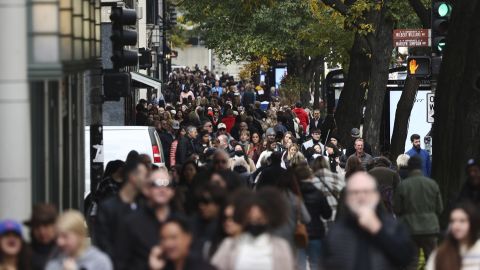
Jobs
The labor market is a bright spot in the US economy, with unemployment at its lowest level in a half-century. And wages are up, on average, more than 5%.
For workers looking to secure better pay or benefits, it’s a great time to negotiate or take a stab at a new gig. For hiring managers, it’s a different story.
There are nearly two jobs available for every one person looking for work — that’s a plus for job seekers, but a concern for the Federal Reserve, since that pushes up inflation as bosses shell out higher pay to compete for talent.
And more good news is expected this week — the US economy is still creating jobs. The October jobs report, out Friday morning, is projected to show 200,000 positions were added last month, well above the pre-pandemic average.
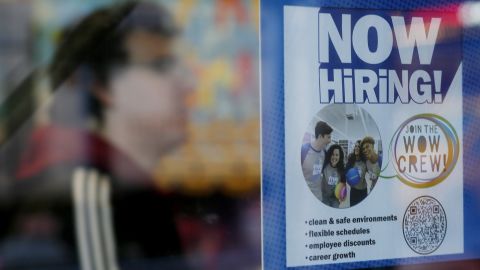
Gas prices
Gas prices are notoriously volatile, and tend to weigh heavily on voters’ minds— even though there’s very little any politician can do to sway prices at the pump one way or another.
That has made for a moody year, as US gas prices shot up to a record average of $5 a gallon over the summer. Since June, prices have fallen significantly, to about $3.78. But that dip may not be enough to buy Democrats any goodwill among voters, given the elevated costs of every other necessity.
Just a week before voters head to the polls, President Joe Biden on Monday sought to direct popular outrage toward oil companies, whose jaw-dropping profits have sparked calls from some on the left for a windfall tax.
“Record profits today are not because they’re doing something new or innovative. The profits are a windfall of war,” Biden said. “Enough is enough.”
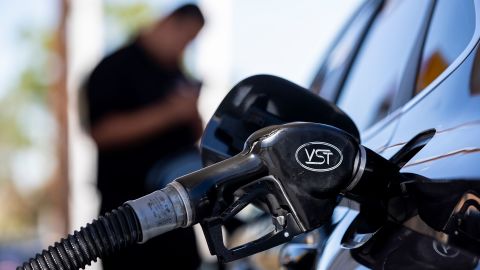
Food prices
Food prices are hitting Americans hard, jumping 11.2% in the year through September. That’s an even more punishing increase than overall inflation. Prices at restaurants are up 8.5% and grocery prices have soared by a whopping 13%.
But some supermarket essentials have spiked even higher over the past year: Eggs are up 30.5%, butter has surged by 26.2%, and flour prices have risen by 24.2%, according to data from the Bureau of Labor Statistics. A handful of grocery items, such as steaks and tomatoes, saw an annual decline.
Several factors have contributed to these higher costs, including the war in Ukraine, droughts and other extreme weather conditions and a deadly avian flu that hit poultry supplies.
But that’s all cold comfort to Americans who have had to change how they eat, switch to store brands and cut back to stay within their budgets. And there might not be much relief for the holidays: A recent report from market research firm IRI estimated that a typical Thanksgiving meal will cost 13.5% more this year compared to last.
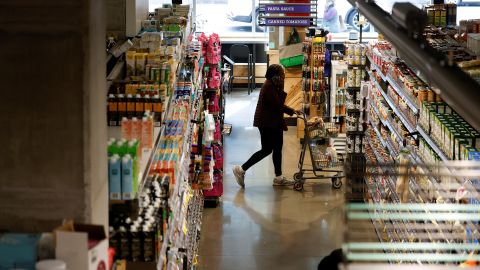
Mortgage rates
Buying a home is the most unaffordable it has been since the mid-1980s.
Mortgage rates for a 30-year fixed-rate loan hit 7% earlier this year, and home prices remain just off their recent record highs, pricing many prospective homebuyers out of the market. Rents are cooling off from their peak, but are still up by double-digit percentages from a year ago in many cities.
Inventory is still tight, since homeowners who locked in ultra-low interest rates during the past two years by buying a home or refinancing are reluctant to give up their low monthly payments by moving. And that threatens to keep home prices well out of reach for many Americans.
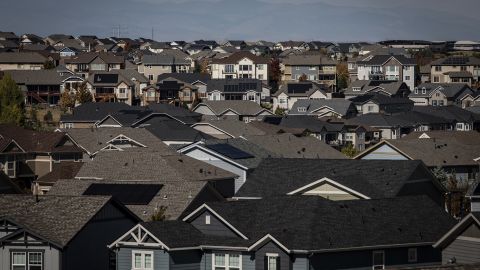
CNN Business’ Alicia Wallace, Anna Bahney and Danielle Wiener-Bronner contributed to this report.
"though" - Google News
November 03, 2022 at 10:47PM
https://ift.tt/xp9rL3v
Here's why 75% of likely voters think we are in a recession — even though we're probably not - CNN
"though" - Google News
https://ift.tt/DwoCFaR
https://ift.tt/TlNwVgA
Bagikan Berita Ini

















0 Response to "Here's why 75% of likely voters think we are in a recession — even though we're probably not - CNN"
Post a Comment